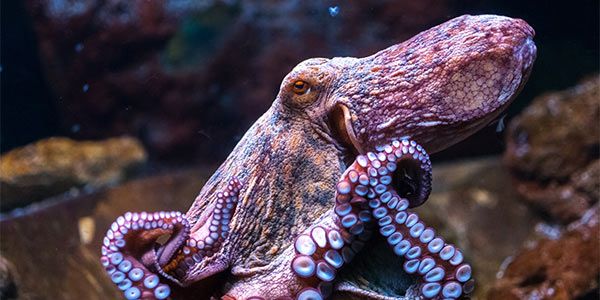
Octopus Consumption in Islamic Dietary Laws: Halal or Haram?

Islamic dietary laws, also known as halal, have specific guidelines for what can and cannot be consumed. One of the contentious issues in Islamic dietary laws is whether octopus is halal or haram. In this article, we will examine the arguments for and against the consumption of octopus in Islamic dietary laws.
First, let's define what octopus is. Octopus is a sea animal that belongs to the mollusk family. It has a soft body and eight tentacles. In many cultures, octopus is considered a delicacy and is consumed in various forms, such as grilled, fried, and boiled.
Those who argue that octopus is halal point out that it is not explicitly mentioned as haram in the Quran or Hadith. They argue that the general rule is that everything is permissible unless it is specifically prohibited. Since the Quran and Hadith do not mention octopus as haram, it should be considered halal.
However, scholars who argue that octopus is haram point out that the general rule is that everything is haram unless it is specifically permitted. They argue that since octopus does not have scales or fins, it falls into the category of haram seafood. The scholars also point out that in the Quran, Allah (SWT) states that everything in the sea is halal except what is explicitly prohibited. They argue that since octopus is not explicitly mentioned as halal, it should be considered haram.
Another argument against the permissibility of octopus is that it is not slaughtered according to Islamic guidelines. In Islam, the animal must be slaughtered in the name of Allah (SWT) by a Muslim or a person of the book (Jews and Christians). This method of slaughter is called zabiha. However, octopus is not slaughtered in this manner. Instead, it is usually boiled alive or frozen to death, which is not in accordance with Islamic guidelines.
However, some scholars argue that since octopus is not considered a fish, it does not fall under the category of seafood. They argue that the rules for fish may not apply to octopus. Furthermore, some argue that the issue of slaughter does not apply to octopus since it is not an animal that is slaughtered for food. They argue that since octopus is a mollusk, it does not have blood, and therefore, slaughtering it is not necessary.
In conclusion, the permissibility of octopus in Islamic dietary laws is a contentious issue. While some scholars consider it halal, others argue that it is haram. The debate centers around whether octopus falls under the category of seafood and whether it is slaughtered in accordance with Islamic guidelines. Muslims should consult with knowledgeable scholars to ensure that they are consuming halal food. Ultimately, it is the responsibility of the individual to make an informed decision about whether or not to consume octopus based on the opinions of scholars and their own understanding of Islamic dietary laws
Appreciate the creator